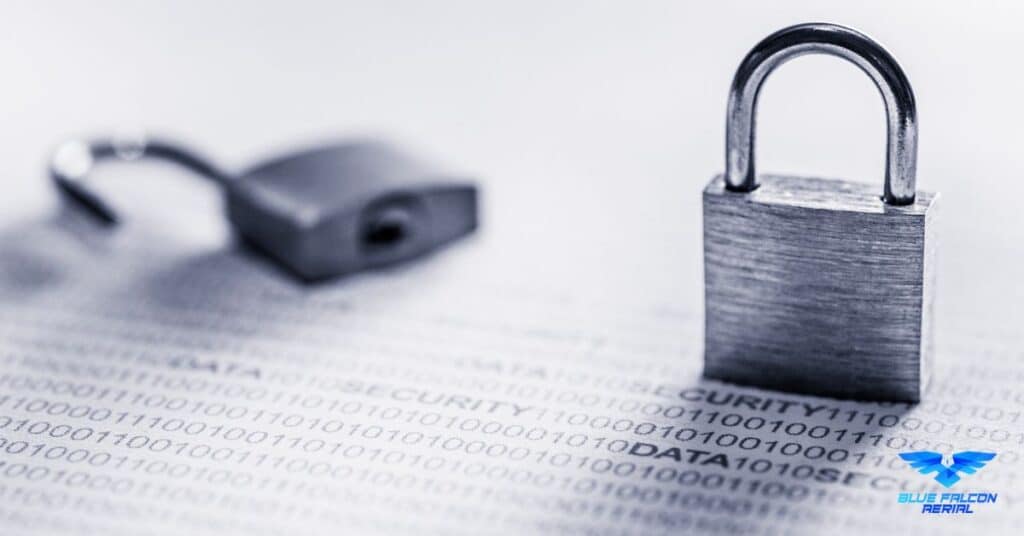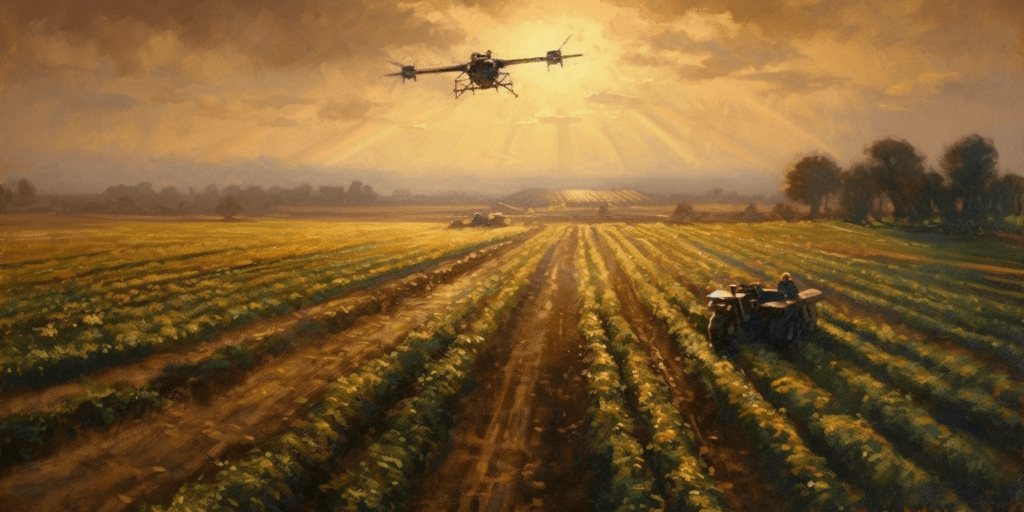In an era where drones are becoming increasingly integral to numerous sectors, the security and privacy of drone data have never been more crucial. As these flying marvels capture and store sensitive information, the concern for safeguarding this data against breaches and misuse takes center stage. This article delves into the complex world of drone data security and privacy, unraveling the challenges, solutions, and best practices to protect what your drone sees and hears. With the focus on drone data security and privacy, we embark on a journey to understand, secure, and responsibly manage the valuable data drones collect.
Key Takeaways
- DJI’s DroneID Security Vulnerabilities: A detailed security analysis of DJI’s DroneID system uncovered critical security flaws, emphasizing the importance of comprehensive security measures in drone operations.
- Kivu’s Independent Data Security Study on DJI: An independent evaluation by Kivu Consulting revealed vulnerabilities in DJI’s data transmission and storage, highlighting the role of independent audits in enhancing drone data security.
- Continuous Vigilance in Drone Security: Both case studies underscore the need for ongoing security analysis and proactive measures to protect drone data against various threats.
- Importance of Independent Security Audits: The Kivu study illustrates how independent evaluations can effectively identify and rectify security vulnerabilities in drone systems.
- Impact of Research and Development on Security: The findings from these studies stress the necessity for continuous innovation and improvement in drone data security protocols.
- Drone Data Security and Privacy: These case studies demonstrate the evolving nature of drone data security, reinforcing the need for robust security protocols and privacy considerations in drone operations.
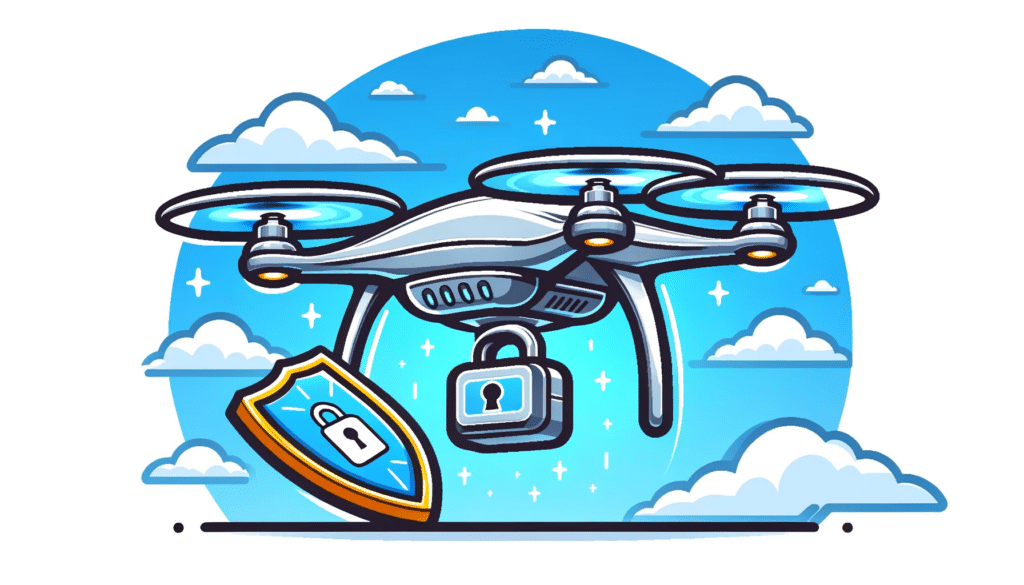
Understanding Drone Data Vulnerabilities
Drone technology, while innovative, is accompanied by inherent data vulnerabilities that must be thoroughly understood and addressed.
Types of Data Collected by Drones
Drones are versatile data-gathering tools, collecting a range of information:
- Visual and Audio Data: Beyond images and videos, some advanced drones also capture audio recordings.
- Telemetry Data: This includes flight patterns, altitude, speed, and GPS coordinates.
- Environmental Data: Drones equipped with specific sensors can collect environmental data like temperature, humidity, or air quality.
Potential Risks and Vulnerabilities
Each data type presents unique risks:
- Interception and Misuse: The risk of sensitive data being intercepted and misused by unauthorized parties.
- Data Integrity Attacks: Potential for data corruption or alteration during transmission.
- Legal Compliance Risks: Collecting data without proper authorization can lead to legal consequences.
Key Strategies for Drone Data Security
Implementing comprehensive security strategies is crucial for protecting drone data.
Securing Drone Hardware
Physical security measures include:
- Geofencing: Implementing geofencing to restrict drone operations in sensitive areas.
- Tamper-Proof Hardware: Using hardware that can detect and alert users of physical tampering attempts.
Software Security Measures
On the software front, security includes:
- Secure Communication Protocols: Ensuring that all communications between the drone and controller are secure.
- Regular Software Audits: Conducting frequent audits of the drone’s software to detect vulnerabilities.
Encryption and Secure Data Transmission
Strong encryption is key to protecting data:
- VPN for Drones: Utilizing Virtual Private Networks (VPNs) for secure data transmission.
- Blockchain Technology: Exploring blockchain for secure, tamper-proof data logging.
By expanding on these areas, drone operators can better understand and mitigate the risks associated with drone data, ensuring both the security of their operations and the trust of their clients and the public.
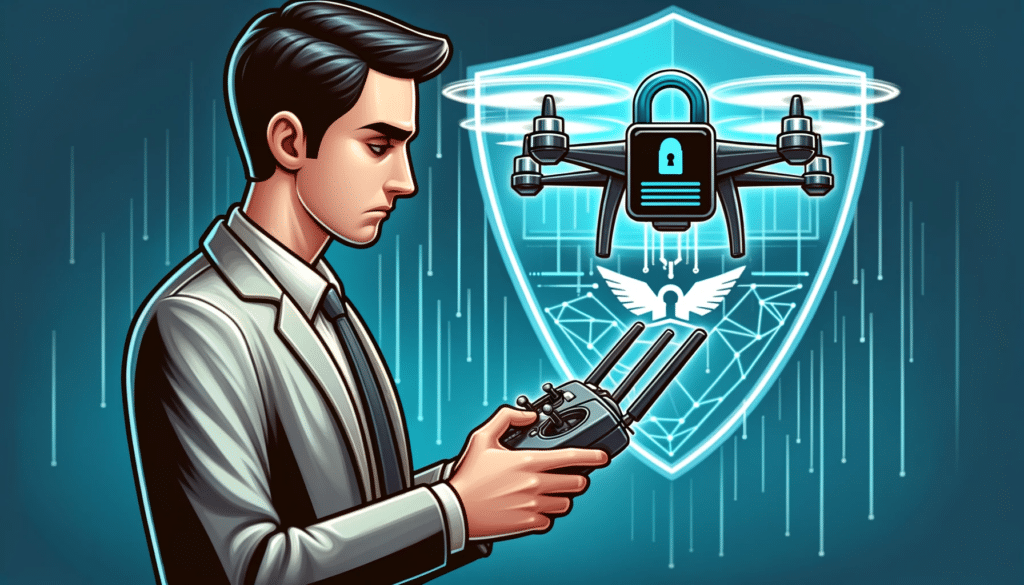
Privacy Concerns in Drone Operations
Privacy considerations in drone operations extend beyond compliance with laws; they touch upon the ethical responsibility of operators and the broader societal implications.
Legal Aspects of Drone Privacy
Legal considerations are not just about adhering to existing laws but also about staying ahead of evolving legislation:
- International Variations: Understanding the differences in drone privacy laws across countries.
- Lobbying and Advocacy: Participating in discussions and advocacy for reasonable and clear drone privacy regulations.
Ethical Considerations and Public Perception
Ethics and public perception play a critical role in shaping drone policies:
- Community Engagement: Engaging with local communities to understand their concerns about drone use.
- Voluntary Privacy Protocols: Implementing voluntary measures that exceed legal requirements to build public trust.
Balancing Surveillance Capabilities with Privacy Rights
Balancing the utility of drones with privacy rights involves:
- Consent Mechanisms: Implementing systems for obtaining consent from individuals in areas where drones operate.
- Privacy by Design: Integrating privacy considerations into the design and development of drone technologies.
Future Trends in Drone Data Security and Privacy
As drone technology advances, the landscape of data security and privacy is poised for significant changes.
Emerging Technologies and Their Impact
Emerging technologies will shape the future of drone data security:
- Quantum Encryption: Potential use of quantum encryption methods for unbreakable data security.
- Drone Identity Management Systems: Development of robust systems for managing drone identities and access rights.
Predictions for the Evolution of Drone Data Security
The future landscape of drone data security might include:
- Global Data Security Standards: The development of global standards for drone data security to ensure uniformity in practices.
- Drone Data Security Certifications: Introduction of specialized certifications for drones, focusing on data security and privacy.
The expansion of these sections provides a more in-depth understanding of the complexities surrounding drone data security and privacy, emphasizing the importance of proactive measures, ethical considerations, and the potential of emerging technologies to shape the future of drone operations.
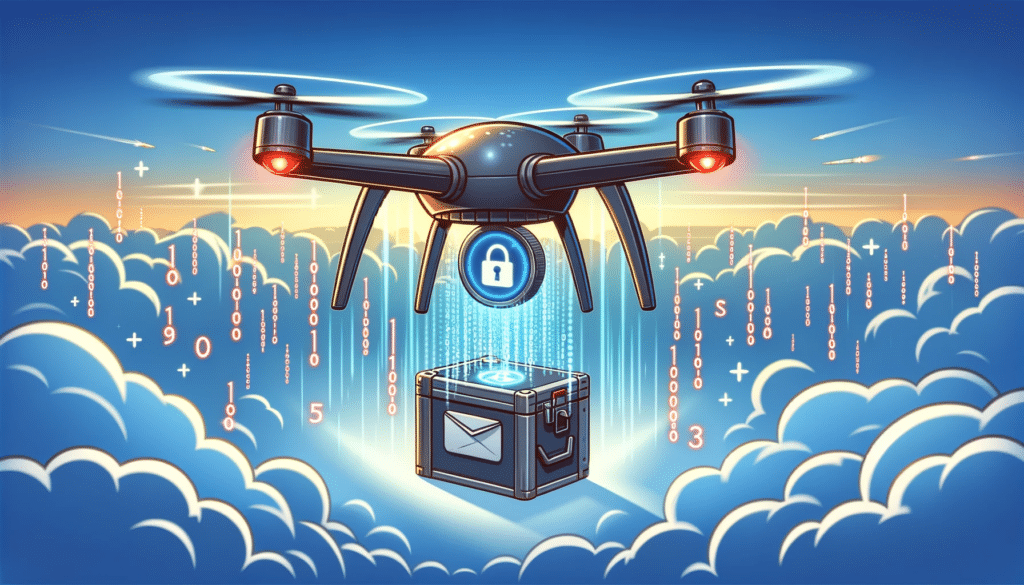
Real World Case Studies and Examples
Exploring real-world examples provides invaluable insights into the complexities and solutions in drone data security. Here are two significant case studies:
DJI’s DroneID Security Analysis
This study delved into the security of DJI’s DroneID system:
- Objective: Researchers aimed to uncover potential vulnerabilities in DJI’s drone communication protocols and firmware.
- Findings: The analysis revealed critical security flaws, ranging from the potential for in-flight control loss to unauthorized data access.
- Approach: The team employed reverse engineering and tailored fuzzing approaches, highlighting the need for rigorous security measures.
- Impact: This study underlines the importance of comprehensive security analysis in protecting drone data against a range of threats.
Kivu’s Data Security Study on DJI
Kivu Consulting’s independent evaluation focused on DJI’s data transmission and storage:
- Objective: The study aimed to assess the data security of DJI drones, particularly in relation to the GO 4 mobile app.
- Findings: The assessment revealed user control over data collection and transmission, along with potential vulnerabilities in the app and DJI’s servers.
- Actions Taken: Following the study, DJI addressed the identified vulnerabilities, demonstrating proactive measures in drone data security.
- Impact: This case study illustrates the effectiveness of independent audits in identifying and rectifying security vulnerabilities.
Both case studies emphasize the importance of ongoing vigilance and the implementation of robust security protocols to safeguard drone data. They serve as a testament to the evolving nature of drone data security, underscoring the necessity for continuous innovation and improvement in this field.
Ensuring the security and privacy of drone data is a multi-faceted challenge requiring a strategic blend of technology, legal knowledge, and ethical considerations. As we have explored, protecting drone data is not just a technical issue but a comprehensive practice that involves understanding vulnerabilities, implementing robust security measures, and respecting privacy rights.
For those keen to explore deeper into the realm of drone operations, particularly in building and growing a drone business with a strong emphasis on data security and privacy, a visit to Soaring High: A Comprehensive Guide to Building and Growing Your Drone Business is highly recommended. Additionally, if you’re looking for professional drone services that prioritize data security and privacy, do not hesitate to reach out to Blue Falcon Aerial through our contact page. Let us help you navigate the skies safely and securely, ensuring that your drone data remains protected at all times.

